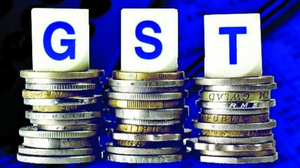
New Delhi, Sep 4 (IANS) The GST 2.0 reforms were lauded by the Federation of Indian Chambers of Commerce & Industry on Thursday, for bringing predictability and transparency to India’s tax system, and correcting the inverted duty structure in several sectors.
The GST Council’s newly-approved two-tier GST structure, effective from September 22, 2025, will benefit labour-intensive industries, households, and consumption-driven growth, the industry group said.
“GST 2.0 reforms are a consumer-focussed and growth-oriented reform that will bring transparency, predictability, and stability to India’s tax system,” a release from FICCI said.
The correction of inverted duty structures in textiles, fertilisers, and renewable energy will reduce import dependence and improve the global cost competitiveness of Indian goods, it added.
The reforms will directly benefit households, labour-intensive industries, MSMEs, and critical sectors such as healthcare, agriculture, infrastructure, and automobiles — reducing costs for consumers and boosting consumption-driven growth, the industry body said.
The reforms will reduce classification disputes, improve compliance and address anomalies on account of inverted duty structure, said Harsha Vardhan Agarwal, President, FICCI.
While he acknowledged that there are revenue implications for the government, the FICCI President added that the reduction in rates will boost consumption demand and contain inflation.
The reduction of GST rates on essential items and FMCG products such as soaps, shampoos, toothpaste, hair oil, bicycles, kitchenware, and packaged foods will ease household budgets and strengthen consumption.
Lower rates on goods related to agriculture will reduce costs for farmers, enhance rural incomes, and support food security. Similarly, rate cuts on capital goods and industrial inputs will bring down manufacturing costs, the industry body said.
The tax relief for labour-intensive sectors like handicrafts, textiles, leather, footwear, marble, granite, and toys will strengthen MSMEs, safeguard traditional livelihoods, and create new jobs.
According to FICCI, lower GST on cement, renewable energy devices, and construction materials will spur housing and infrastructure development, aligning with the government’s vision of housing for all.
–IANS
aar/rad




